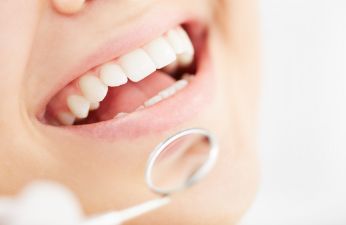
Is dentistry expensive? You may be surprised to hear it, but not getting dentistry costs a lot more. In fact, over 2 million dental emergencies are treated in the hospital each year. These visits are very expensive and are often made by people who don’t get regular preventive care. Clearly, while there’s a common misconception that skipping checkups saves money, nothing could be further from the truth! Keep reading below to learn about lowering the cost of dentistry and keeping your smile a lot healthier and happier.
How Do Checkups Lower the Cost of Dentistry?
When it comes to your health, the old saying, “An ounce of prevention is worth a pound of cure” couldn’t be more true. As with most things, it’s easier and cheaper to prevent problems altogether or at least find them in the early stages.
Here’s a good example: Small cavities don’t usually cause much pain. But a dentist can find them during checkups with special diagnostic tools such as annual X-rays. That allows them to repair the problem with a simple, inexpensive dental filling. If you wait until you’re in pain to come in, there’s a good chance you’ll need more extensive dental work like a crown or even a root canal. At that point, you’ll not only spend a lot more, but you’ll also have to deal with a painful toothache.
In addition, checkups and cleanings go a long way towards keeping your gums healthy. And since gum disease is the leading cause of tooth loss, getting these services at least once per year (and ideally twice) is well worth it.
At-Home Tips To Minimize Major Dental Work
Routine dental care is the foundation of good oral health. But what you do at home is equally important. Here are some ways to prevent problems altogether and save on the cost of dentistry:
- Get the basics down – Although it seems simple, brushing twice a day and flossing once will benefit your dental health immensely. Your habits don’t have to be perfect, but try to be as consistent as possible (i.e. flossing just 4 times a week is better than never flossing at all).
- Watch your sugar intake – You don’t have to completely give up sugar, but being aware of it and minimizing your intake can really help you stay cavity-free.
- Use the right products – Many people find it easier to brush and floss when they find the tools that work best for them. That could be an electric toothbrush, floss picks, interdental brushes, or an oral irrigator. Ask a dentist or hygienist for recommendations to get an idea of where to start.
With just a couple of checkups per year and a few good habits at home, you’ll keep your time in the dental chair to a minimum.
About the Author
Dr. Jon Davidson has been practicing as a family dentist for nearly 25 years. In that time, he’s found that his patients who get regular checkups need less major dental work than those who don’t, so he always encourages people to schedule these visits. If you’re overdue for routine dental care or have any questions, he can be reached via his website.
